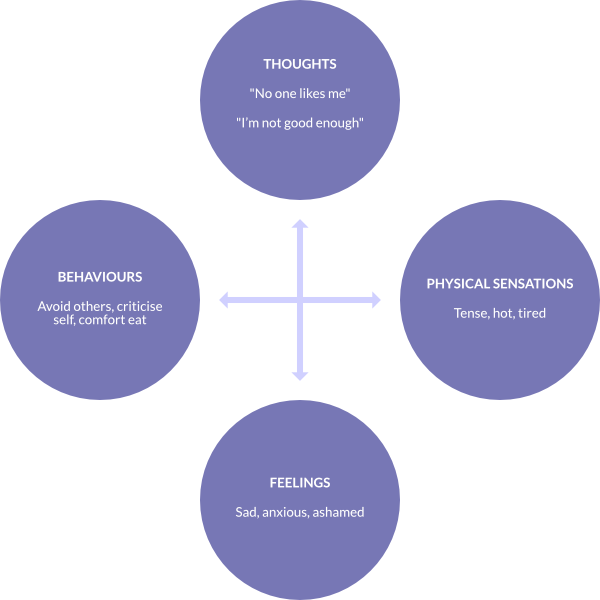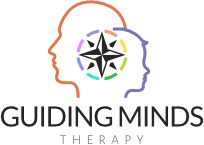What is CBT?

What is CBT?
CBT is based on the idea that your thoughts, feelings, physical sensations and behaviours are all interconnected. Negative thoughts, affect how you feel and often lead to unhelpful behaviours and this can leave you feeling trapped in a vicious cycle of depression or anxiety.
CBT focuses on the here and now in main, it breaks situations and problems down into small parts and after a period of assessment you are taught a range of tools to help you manage negative thoughts and behaviours.
For long standing difficulties, you may also look at past experiences and the development of unhelpful beliefs and assumptions, to consider how your childhood may have influenced current thinking and behavioural patterns. This can give you a more detailed understanding of your problem and help you to avoid relapse in the future.
CBT sessions are an hour in length and are usually delivered every 1-2 weeks. ‘Homework’ is set every week to help you monitor problem areas, practice skills or consolidate learning.
CBT is recommended by NICE clinical guidelines as a first line treatment for depression and anxiety, due to its extensive evidence base. Some individuals can notice a change in their mood in as few as 6-8 sessions.
Example of the CBT model



